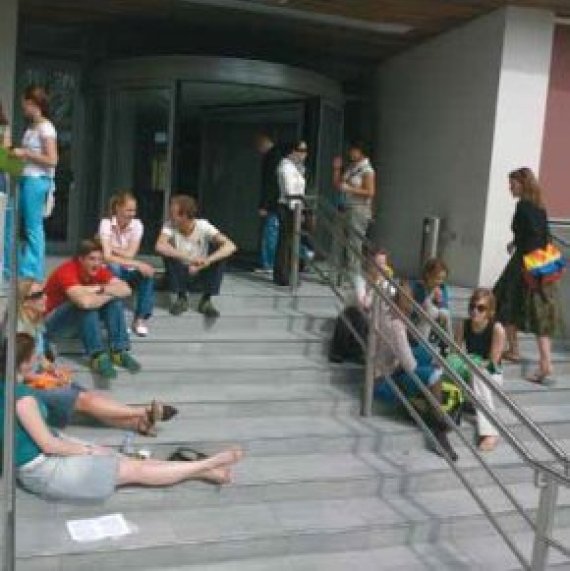It was presented on the front page of De Volkskrant: a few master studies will start averting mediocre students, even when they have completed a bachelor programme of the same topic. If they score lower than a seven average, they basically will not be accepted for a master’s programme.
Outrage everywhere. Especially opposition parties were heard, but also the government party PvdA asked questions. Do those students not have a valid bachelor diploma? But it could not have been a real surprise, especially not for the PvdA. It has been going towards this point for a while now.
It started with the introduction of the bachelor-master system in 2002. The old university education system was cut into two pieces, so that the education systems in Europe would be more comparable. The idea behind this was that after completing the bachelor study students could choose again: where is the best place to go for their master?
Many universities applied a soft transition between the bachelor and the master. If a student almost completed their bachelor, they could already start following a few master courses to smoothen the transition. That made it very tempting to simply carry on with the subsequent master.
Bachelor-before-master rule
It was the Social Democratic Minister of Education, Ronald Plasterk that mandated the ‘bachelor-before-master’ rule (known in Dutch as the ‘harde knip’). Hereafter, students had to complete their bachelor programme before they could start a master study. But one thing stayed the same: for each bachelor study there had to be a subsequent master study where students would automatically be accepted. This ‘subsequent master’ was abolished in September 2014 by Minister Jet Bussemaker also from the PvdA.
Back the majority of votes (VVD, PvdA, D66, ChristenUnie, CDA and SGP) was in favour of the legislative proposal where this was arranged: this was called ‘quality in diversity’ (known in Dutch as kwaliteit in verscheidenheid). However, this law was sugar-coated for the critics. Firstly, every graduated bachelor student needs to be accepted to at least one master study somewhere, without further admission requirements. The Minister can intervene if a graduated students is not accepted anywhere. Secondly, educational institutions may not select students solely on their grades.
But the trend is clear. Politicians want to improve the ‘diversity’ in higher education, bcause – in their view – education was all too similar. They aim for less uniformity and less mediocrity.
Profile and Performance agreements
The fact that master programmes are starting to select which students they allow, thus fits in with the trend of universities and colleges having to choose their own profile, as agreed in the presentation agreements. It also fits with the predilection of policymakers for small, selective education and the introduction of ‘University colleges’ and ‘honours programmes’.
The political centre has previously hardly resisted the trend. At most there was some disagreement about tuition fees: may the fees be raised for programs that offer something extra? And how much higher? But it really should not be a surprise to anyone that the master programmes are now using the opportunity that the political situation has created. Politics has deliberately worked towards this point.

